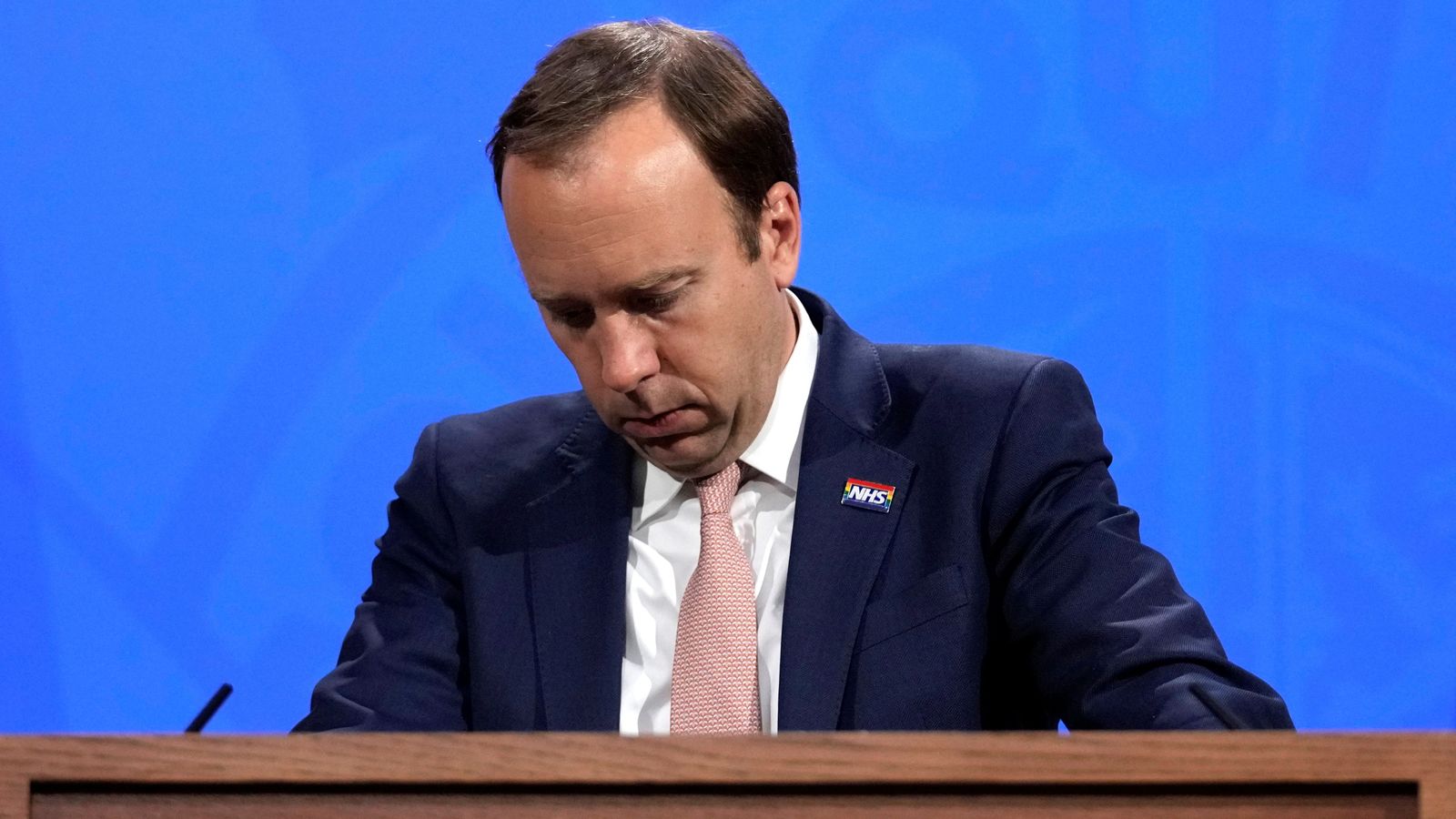As with all modern Tory scandals, the story of Matt Hancock’s departure from government tonight has an explosive short-term trigger.
But it is the former health secretary’s long-standing lack of support within the Conservative Party that ultimately sealed his fate.
The silence of his colleagues the very moment The Sun pictures were published was evident.
A HUGE world exclusive on today's front page – Matt Hancock's secret affair caught on camera and exposed https://t.co/LB52NswvsL pic.twitter.com/gENhuSWNVj
The video of his intimate embrace with a long-time friend at work and allegations of cronyism and hypocrisy over lockdown rules which he personally signed into law have damaged his position.
The lack of public support from MPs meant Mr Hancock did not have a supportive base within the Tory party to feather his fall.
Huge amounts of political capital have already been spent on Mr Hancock in the last few months and years by friends and colleagues alike, and too many people were unwilling to continue to give him a blank cheque.
Downing Street tonight insisted Boris Johnson did not force out his health secretary, and precedent over Priti Patel and Robert Jenrick suggests there is no reason to doubt this.
Mr Johnson had spent a lot of time in interviews and behind the scenes backing Mr Hancock in the face of an assault by his former aide Dominic Cummings.
But the tensions between Number 10 and Mr Hancock – set out by Mr Cummings – have been real for much of the last year and this is not just the view of one rogue advisor.
Please use Chrome browser for a more accessible video player
There is no reason to doubt that the irritated text messages sent by Mr Johnson about Mr Hancock spoke to a wider truth.
Mr Hancock was also causing immense frustration elsewhere in Whitehall and other ministerial offices.
As the guardian of the NHS in government, his job was to advocate more draconian curbs to liberties to protect the health service.
However there were complaints about his zealotry, the Panglossian veneer he put on his work, and his lack of regard for other government projects.
He was fighting battles in Whitehall over coronavirus rules, and many think he was playing dirty – particularly with decisions such as keeping Malta on the amber travel list last month.
Then, critically, there was his lack of sufficient and overwhelming support amongst MPs.
As a group, the Tory party can support someone who has committed almost any transgression if the political benefit is worth it – as they did last year with Mr Cummings.
But the Conservative Party by instinct dislikes many of the curbs to liberty pushed through by the Department of Health and many believed Mr Hancock to be too enthusiastic about lockdown.
Fair or not, he was often the minister leaning into a gloomier prognosis – something that had not gone unnoticed by his colleagues.
But there were seeds of distrust going back further: he ran for the leadership in 2019 on a modernising, centrist ticket but dropped out to support Mr Johnson halfway through – to the horror of some of his backers.
Mr Hancock was rewarded with the health secretary position, but not the admiration of some of those who had supported him.
Had his reputation amongst colleagues not been dented, he may still not have survived this scandal.
The moral rectitude of some colleagues – new intake Tory MP Duncan Baker announcing today that Mr Hancock had fallen short of “appropriate morals and ethics” so should quit – suggests a new puritanism in parts of the party.
But in the end, it was the silence of friends rather than the damnation by enemies that will have been a big factor in Mr Hancock’s decision to quit.






















